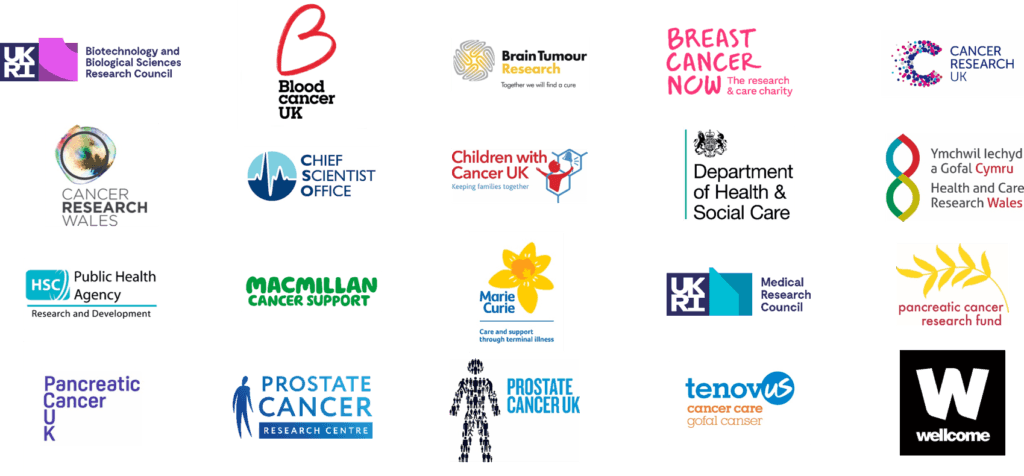Due to the impact of the Covid-19 pandemic, cancer research charities are predicting their spending on research could drop by 46%, equating to £167m.
Charities play a vital role in UK cancer research. Data collected by the National Cancer Research Institute (NCRI) shows that in the year 2018/19, charities accounted for over 50% of publicly funded cancer research, a total of £362m.
With the financial impact of Covid-19, cancer research charities are projecting a 46% decrease[1] in research spend over the next year, and some expect a more significant effect on research spend in the future. This reduction will see overall public investment in cancer research drop by 24%[2].
This projected drop in research funding is reflected nationally across the medical research sector, as data from the Association of Medical Research Charities (AMRC) shows.
The greatest impact will be seen on research focussed on specific cancer types, as a large proportion of site-specific cancer research funding comes from charities (70%). Health departments and medical research councils are large funders of non-site-specific research and the research infrastructure that supports all types of cancer research.
NCRI, whose partners include charities, research councils and health departments from all four nations of the United Kingdom, has been collecting research funding data since 2002 to understand the distribution of funding. NCRI publish annual summaries of this data as well as periodic reports to identify trends and gaps in funding across a range of research areas.

Data show that charities are the largest public funders of site-specific cancer research, including blood cancer (66%), brain tumours (87%), lung cancer (62%), pancreatic cancer (85%) and prostate cancer (80%).
The UK has a strong tradition in medical research and a vibrant research sector in which government, private and commercial funders each play an essential role. As the UK went into lockdown charity shops were closed, fundraising events were cancelled, and donations were diverted. As a result, cancer research charities have reported losses ranging from 20-70% in fundraising income.
There is concern that cancer research funding in the UK will be disproportionately affected compared to other countries due to the high levels of research supported by charitable funding. NCRI is working with the International Cancer Research Partnership (ICRP), which collects cancer research funding data on an international level, to investigate this.
At this time where funding is reduced, cancer research funders must work together to coordinate research, reducing duplication of effort, and identifying priority areas that will have maximum impact for patients. Partnerships like the NCRI, which brings together charities, research councils and government from all four nations of the United Kingdom, are vital to act as a catalyst for progress in cancer research through collaboration.
Dr Iain Frame, Chief Executive, NCRI
[1] The NCRI worked with ICRP to survey 13 charity Partners from its membership. 12 of the 13 respondents expected income to decrease. 8 of the respondents were able to estimate a loss of income between 20% and 70% in the current financial year (2020/21) which amounts to an overall estimated reduction in income of £221m.
11 Respondents stated that funds for research would decrease, with the reductions in funding ranging from 25% to 100%. Using the estimated reductions in research spend we can predict a minimum reduction of £61m invested in cancer research up to a possible predicted £167m reduction in research spend in the current financial year.
[2] The NCRI’s Cancer Research Database reported that £702m was invested in cancer research in 2019, therefore the reduction in funding in the current financial year, due to the drop in NCRI charity Partner research spend, is estimated to be between 9% and 24%.